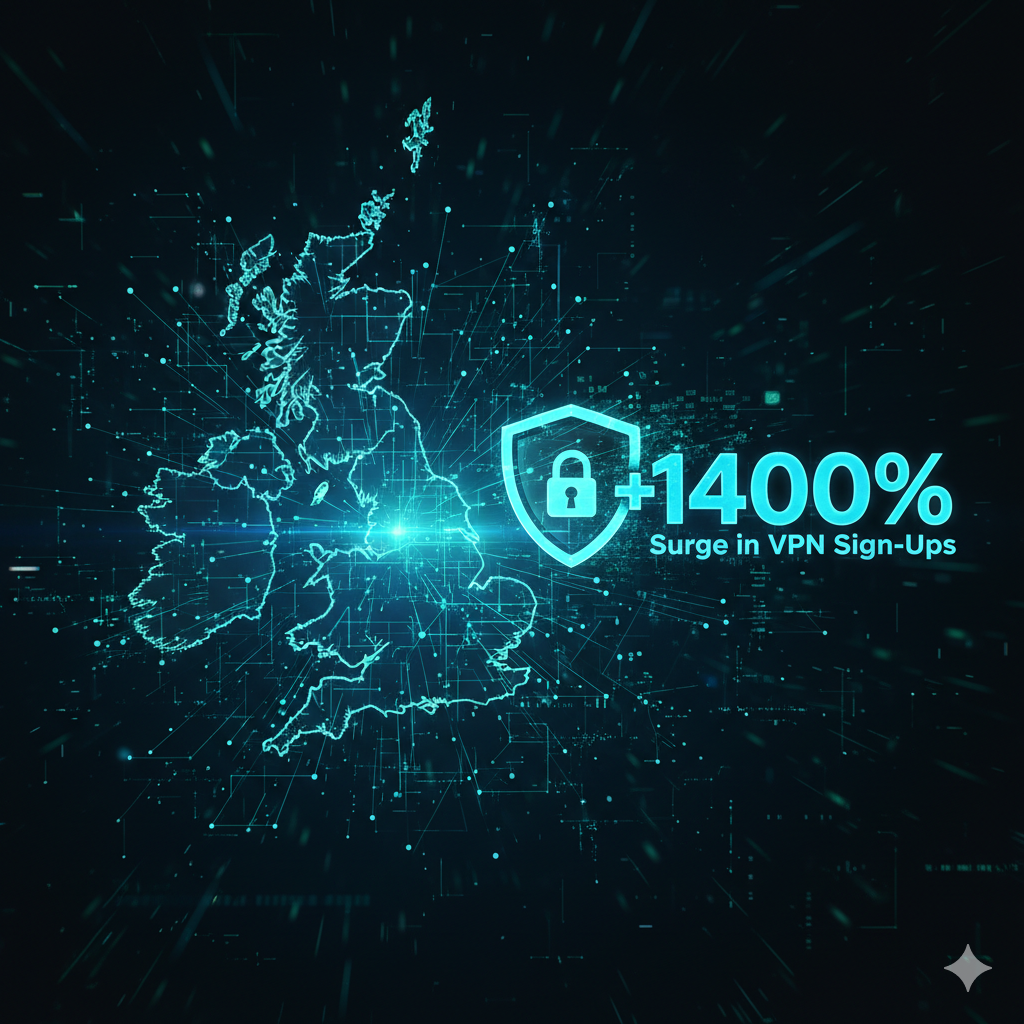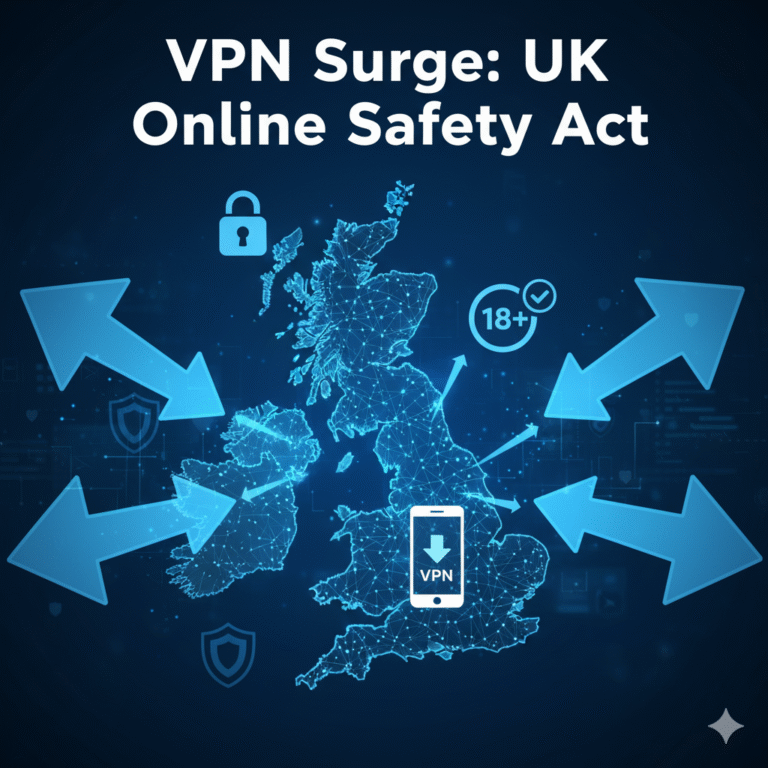On 25 July 2025, the Online Safety Act 2023 (OSA) came fully into force in the United Kingdom, bringing in sweeping new requirements for age verification on adult content platforms(UK Online Safety Act). One of the most striking outcomes: a dramatic 1400% plus surge in sign-ups for virtual private network (VPN) services in the UK. Carefully tracking this spike provides a window into how privacy tools respond when online regulations tighten—and raises important questions about internet freedom, surveillance and user behaviour.
What the law requires & why it matters
The Online Safety Act requires websites that host “adult content” and other potentially harmful material (such as self-harm, eating disorders, hate content) to implement “highly-effective” age-verification systems for UK users. For adult-content sites, this might mean uploading an ID document, a selfie for facial-age estimation, or other identity checks. Non-compliant locations face heavy fines (up to 10% of global turnover) or blocking.
Why does this matter for VPNs? Because VPNs allow users to mask their IP address and appear as if they’re browsing from another location—or bypass regional restrictions entirely. When age-verification is introduced, users accustomed to anonymous or semi-anonymous access may turn to VPNs to retain that anonymity.
The 1400% surge & what the data shows
According to multiple sources:
Proton VPN reported a 1,400% increase in sign-ups originating in the UK just minutes after the OSA’s rules took effect.
Other sources report even wider spikes: one report by Windscribe and others estimated increases of thousands of percent or “over 6,000%” at peaks.
According to Google Trends commentary, searches for “VPN” and related terms surged by thousands of per cent in the UK over the same weekend.
This suggests that the arrival of the law triggered a behavioural surge: users rapidly sought VPN tools, likely to bypass or avoid the new age-checks.
Why users are turning to VPNs
There are several overlapping reasons why this jump happened:
Privacy concerns: Many users are uncomfortable submitting biometric data, ID documents or bank data just to access online content. The age-verification requirements raise data-protection and surveillance concerns.
Geographic bypassing: Using a VPN, a UK user could appear to be browsing from a region that doesn’t require the checks, thereby circumventing the new regulation. As one user put it in commentary: VPN installation takes “less than five minutes”. (AInvest)
Precedents: Similar regulatory changes in France led to VPN spikes, so the shift wasn’t unexpected for observers.
Implications for the VPN industry & internet governance
The surge in VPN usage has multiple implications:
For VPN services: They’ll see rapid growth in user numbers, but also increased scrutiny—both from regulators and from enterprise security teams who worry VPNs may be used for malicious traffic.
For regulators: The UK regulator Ofcom has already signalled concern that VPNs undermine enforcement of the age-verification rules.
For privacy & internet freedom: A balancing act emerges between protecting minors and preserving anonymity, encryption and access. Some digital-rights advocates argue that this surge shows how enforcement pushes users toward circumvention tools rather than bringing them into compliance.
Comparing with other nations & metrics
– In France, when adult content access was disrupted due to age verification rules, VPN usage rose by approx. 874%.
– In the UK, one research firm estimated peaks up to 6,430% (though this was not sustained) in the first hours after the law came in.
– This shows that regulation-driven traffic shifts in VPN demand are sharp and often immediate.
What users and enterprises should keep in mind
For users, if you’re turning to a VPN:
Ensure you pick a reputable provider with strong encryption, a no-logs policy, and audited infrastructure. Some free or dubious VPNs may compromise your privacy.
Recognise legal/regulatory risks: while VPNs are legal, using them to bypass rules might sit in a grey zone depending on jurisdiction.
For enterprises/IT admins, the surge is a reminder:
Increased VPN usage can signal attempts to bypass internal controls, geolocation restrictions or regulatory enforcement.
Conditions like this may warrant monitoring for unusual VPN traffic, ensuring remote access tools are secured and compliant with policy.
Learn more than Swiss Government Plans to Curb Privacy Tech, Raising VPN Alarms
Conclusion
The UK’s Online Safety Act – while designed to protect children online by enforcing robust age-verification – has triggered an unmistakable and dramatic response: a sharp rise in VPN usage, reportedly above 1,400% within hours. The jump reveals the tension between regulation and user behaviour, and underscores how privacy tools like VPNs remain deeply intertwined with debates about anonymity, access and digital rights. For both consumers and organisations, the lesson is clear: when regulatory pressure increases, so too does the incentive to use circumvention tools—and that means both opportunity and risk.



